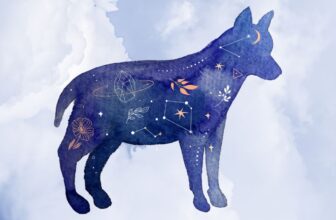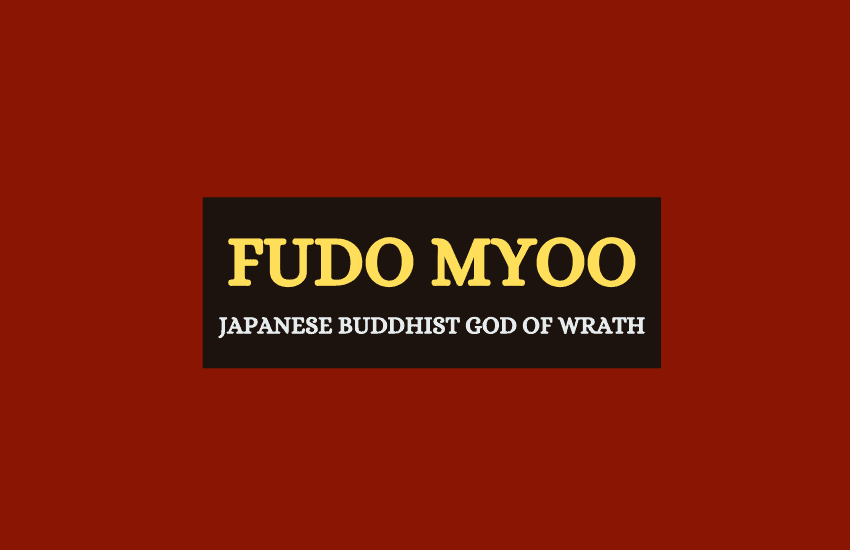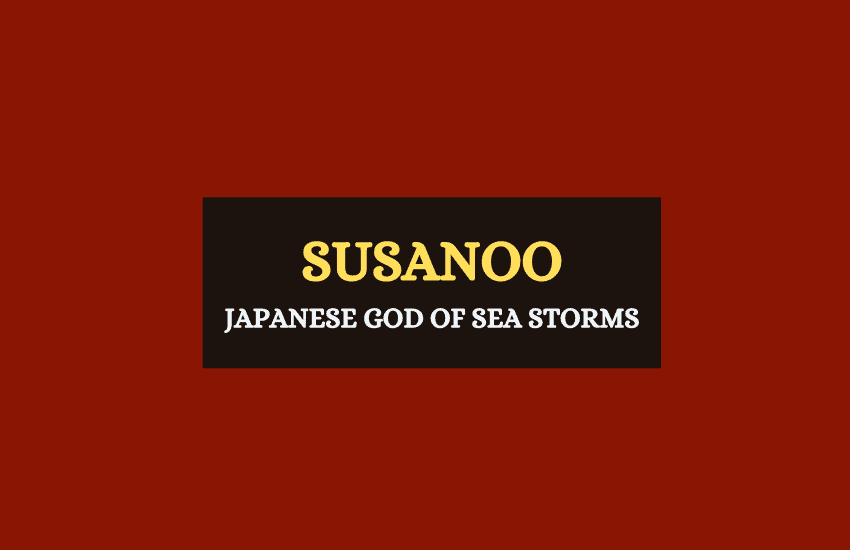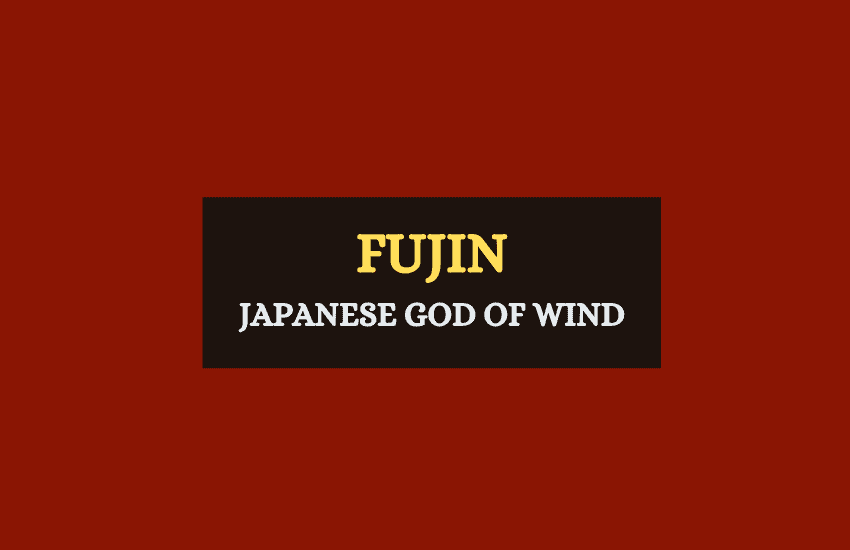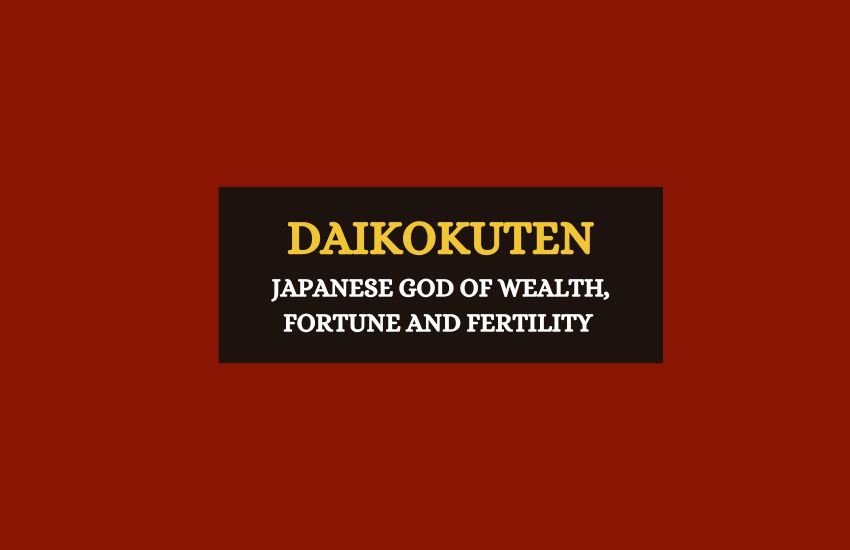
Table of Contents
Although Daikokuten is not well known in the West, he is considered one of Japan’s most popular deities. Also known as the god of five cereals, he is the symbol of wealth, fertility, and abundance, and his image is commonly seen in shops across the country. Let’s take a closer look at this beloved Japanese god, and how he came to be
Who is Daikokuten?
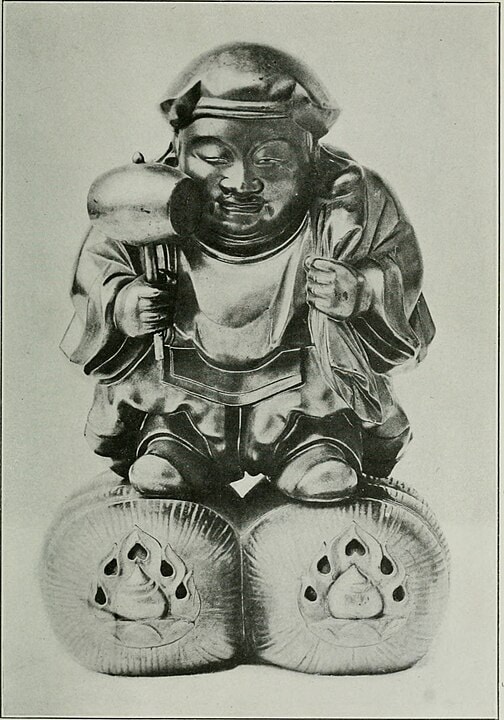
In Japanese mythology, Daikokuten is one of the Shichifukujin, or the Seven Lucky Gods, who bring prosperity and fortune to people throughout Japan. He is often portrayed as a stout, dark-skinned figure holding a wish-granting mallet in his right hand and a bag of precious items slung over his back.
Daikokuten’s origins can be traced back to both Hindu and Buddhist traditions, as well as native Shinto beliefs. In particular, Daikokuten is believed to have originated from Mahākāla, a Buddhist deity who is closely associated with the Hindu god Shiva.
While Mahākāla means “Great Black One,” Daikokuten translates to “God of the Great Darkness” or “Great Black Deity.” This highlights the duality and complexity of his nature as he embodies both darkness and fortune. This association may be because of his connection with thieves, as well as his status as a benevolent god of good fortune and prosperity.
As he is also believed to be the guardian of farmers, Daikokuten is often shown sitting on two rice bags while holding a mallet, with rats occasionally nibbling at the rice. The rodents that are often seen with him represent the prosperity he brings because their presence signifies abundant food.
Daikokuten is particularly revered in the kitchen, where he is believed to bless the five cereals – including wheat and rice, which are considered the staple grains of Japan and essential to the country’s culinary traditions. His association with the kitchen and blessing of these essential cereals highlight his status as a deity of abundance and prosperity, deeply woven into the Japanese culture.
Daikokuten and Ebisu
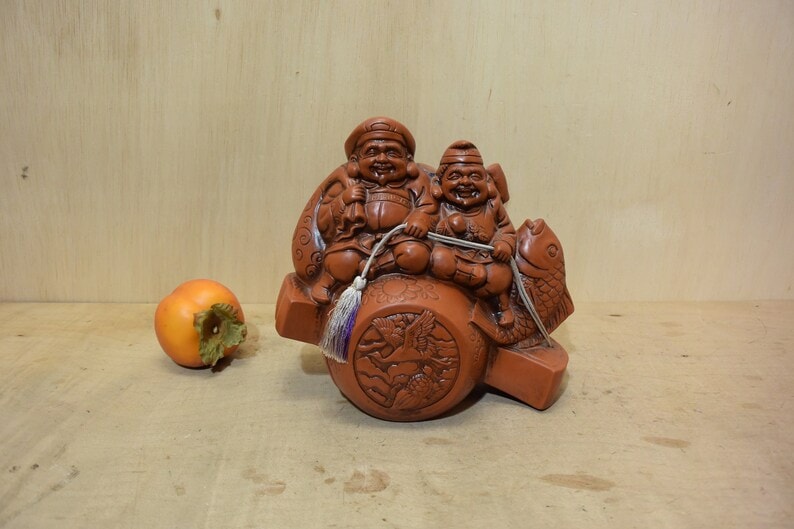
Daikokuten is often paired with Ebisu, the god of trade and the patron of fishermen. Although they are both considered independent deities within the Shichifukujin, Daikokuten, and Ebisu are often worshipped as a pair due to their complementary associations with agriculture and fisheries.
Daikokuten is the deity of agriculture, particularly rice cultivation, and is believed to bring about a good harvest and prosperity. On the other hand, Ebisu is the deity of fisheries and is associated with plentiful catch and good fortune.
Both of them are also worshipped as deities of commerce because the products of agriculture and fisheries were historically the primary commodities in Japan. This reflects the close relationship between religion, economics, and daily life in traditional Japanese society and underscores the vital role that deities like Daikokuten and Ebisu played in shaping
Japan’s cultural and spiritual landscape.
Legends about Daikokuten and His Significance in Japanese Culture
As a popular Japanese deity, many legends and stories are attached to Daikokuten, demonstrating his popularity and his significant role in Japanese society. However, it is essential to approach these stories cautiously and recognize the diversity of perspectives and interpretations when it comes to legends about deities. Here are some of the more popular legends about Daikokuten and their significance in Japanese culture:
1. He Favors the Bold and the Brave
A tradition known as fukunusubi suggests that if someone steals a household shrine dedicated to Daikokuten and isn’t caught in the act, they will be blessed with good fortune. This belief highlights Daikokuten’s status as a deity who rewards those who are bold and willing to take risks in pursuit of prosperity.
This association with thieves may seem contradictory to Daikokuten’s image as a deity of prosperity and good fortune. However, as “God of the Great Blackness,” he is also seen as a god of thieves whose luck keeps them from getting caught. It is a reflection of the complex nature of Japanese mythology, where different deities are associated with multiple aspects of human behavior and emotions.
2. His Image is a Phallic Symbol
The Shinto folk religion has various beliefs related to kodakara (children) and kozukuri (making babies), some of which involve Daikokuten himself. This includes claims that statues of Daikokuten on top of a bag of rice can be interpreted as representing the male sex organ. In particular, it is said that his hat resembles the tip of the penis, his body is the penis itself, and the two rice bags that he is sitting on stand for the scrotum.
It is important to note, however, that these beliefs are not widely accepted or promoted by mainstream Shintoism, the official religion of Japan. Many other interpretations of Daikokuten’s statue emphasize his role as a deity of wealth, abundance, and good fortune rather than the sexual connotations.
3. He has a Female Form
Daikokuten is the only member of the Seven Lucky Gods in Japanese mythology with a feminized form known as Daikokutennyo. Her name, which translates to “She of Great Blackness of the Heavens” or “She of Great Blackness,” signifies her divine essence and association with abundance and prosperity.
When Daikokuten is depicted in this female form, she is often connected with Benzaiten and Kisshōten, two other prominent goddesses in Japanese mythology. This trio of feminine deities represents different aspects of fortune, beauty, and happiness, further strengthening their connection in the Japanese pantheon.
4. He Represents Fertility and Abundance
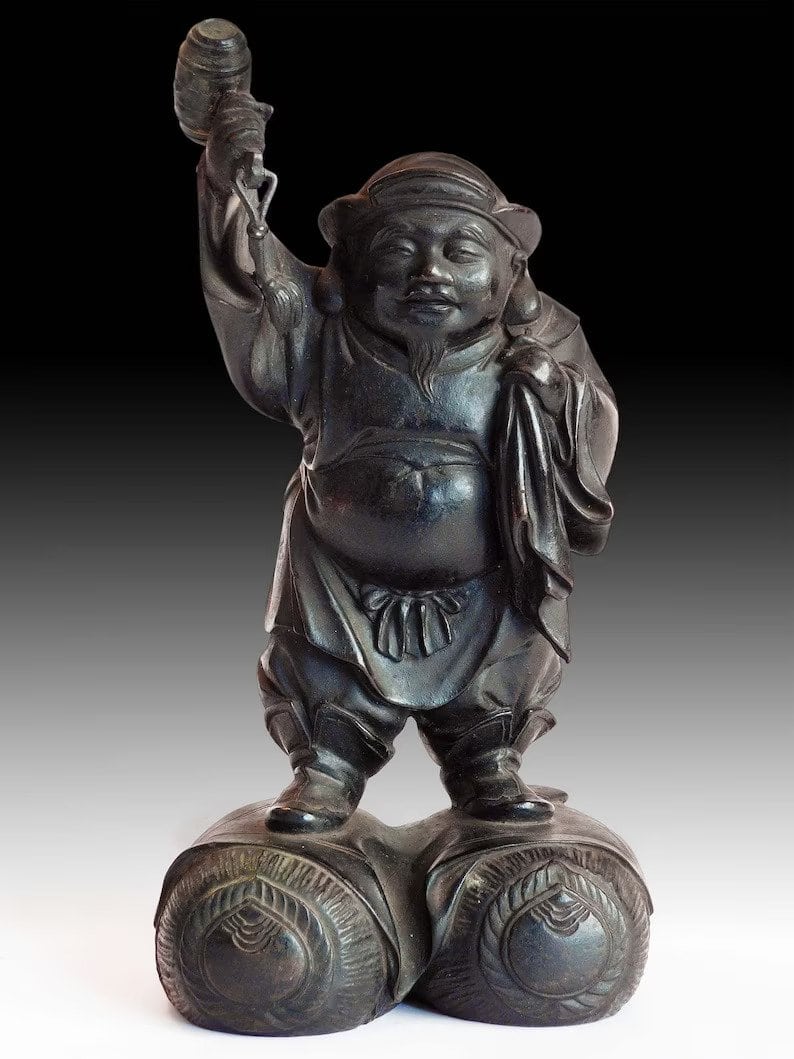
Daikokuten has a diverse influence that is centered around amplifying and multiplying existing blessings, particularly those related to wealth and fertility. Because of his ability to increase value and bounty, Daikokuten has become a symbol of fertility, productivity, and abundance.
As a member of the Seven Lucky Gods, Daikokuten’s supportive role helps to enhance the influence of the other gods, creating a holistic and auspicious environment for those who revere them. This allows him to bestow blessings that amplify the influence of the other gods, such as Fukurokujin, the god of longevity, and Benzaiten, the goddess of water, demonstrating the interconnectedness of the Seven Lucky Gods in Japanese mythology.
5. His Mallet Can Grant Wishes and Bring Good Luck
In his depictions, Daikokuten is often seen holding a mallet called the Uchide no Kozuchi, which translates to “Small Magic Hammer,” “Miracle Mallet,” or “Lucky Mallet.” It is a powerful mallet that is said to have the ability to grant anything that the holder desires and is a popular item in several Japanese myths, folklore, and artworks.
Some legends claim that you can make a wish by tapping a symbolic mallet on the ground three times, after which Daikokuten will grant your desires. Tapping the mallet is believed to symbolize knocking on the door of opportunity, and the wish-granting power of the deity is thought to help open that door. The mallet is also depicted as having a sacred wish-granting jewel decorating it, representing unfolding possibilities and symbolizing the idea that your potential for success and prosperity is limitless with the right mindset and actions.
Daikoku Festival
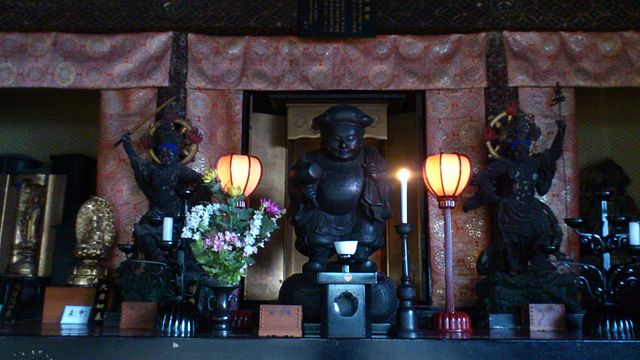
One of the more popular celebrations held in Daikokuten’s honor is called the Daikoku Festival, or the Daikoku Matsuri. It is an annual celebration held in Japan and is famous for its vibrant atmosphere, with many attendees dressed in traditional clothing and participating in various activities, including traditional dances, performances, and rituals.
The festival is usually held in mid-January, close to Coming-of-Age Day, which also recognizes those who have just turned 20 years old and officially become adults in Japanese society. During the celebration, a Shinto dancer dresses up as Daikoku, complete with his trademark black cap and large mallet, and performs a special dance to entertain the crowds. The dancer greets the new adults by shaking his lucky mallet above their heads, symbolizing the deity’s blessing as he bestows good fortune upon them.
Wrapping Up
Daikokuten is a Japanese deity of fortune and wealth and is one of the Seven Lucky Gods in Japanese mythology. His name translates to “God of the Great Darkness” or “Great Black Deity,” reflecting the duality of darkness and fortune that is in his nature.
He is also known as the god of five cereals and is typically depicted with a broad face, a large, bright smile, a black cap, and a large mallet while sitting on bales of rice surrounded by mice and rats. It is said that those who seek good fortune and prosperity can receive Daikokuten’s blessings, and that he holds a powerful mallet that can grant the wishes of lucky believers.
Further reading about other Japanese deities
Fudo Myoo – Japanese God of Wrath and Immovable Faith
Susanoo –Japanese God of Sea Storms
Fujin – The Wind God in Japanese Mythology
Bakeneko Cat – Japanese Feline Spirits
Inugami – Tortured Japanese Dog Spirit
Obake and Bakemono – Japanese Ghosts, Shapeshifters, or Something Else Entirely?




